Leadership and Organization
The Swedenborgian Church of North America is a network of various local ministries and churches. Active members of ministries and churches within the denomination are eligible to vote at the Annual Convention where structural changes, leadership changes, and officers of the national church are decided upon.
Local ministries and churches are grouped together into regions that are called “Associations” in the United States, and “Conferences” in Canada. The Associations/Conferences provide guidance and resources to their churches and are responsible for sending members from their constituent ministries to Convention as delegates. The amount of delegates each Association/Conference sends is dependent on how many total members they have (Every Association/Conference starts with two and gains an additional delegate for every 10 members).

“Every love has a purpose. All wisdom moves toward fulfilling that purpose…”
Emanuel Swedenborg, True Christianity 47
Council of Ministers
The Council of Ministers is composed of all of the ordained ministers that are in good standing with the Council. Within the Council of Ministers they have their own Executive Committee made up of the President, Secretary, and three additional members. In addition to this there are several other committees that help govern the education, placement, funding, and misconduct of the Council of Ministers. Every active member of the Council of Ministers has the right to vote at Convention.

Rev. Rich Tafel
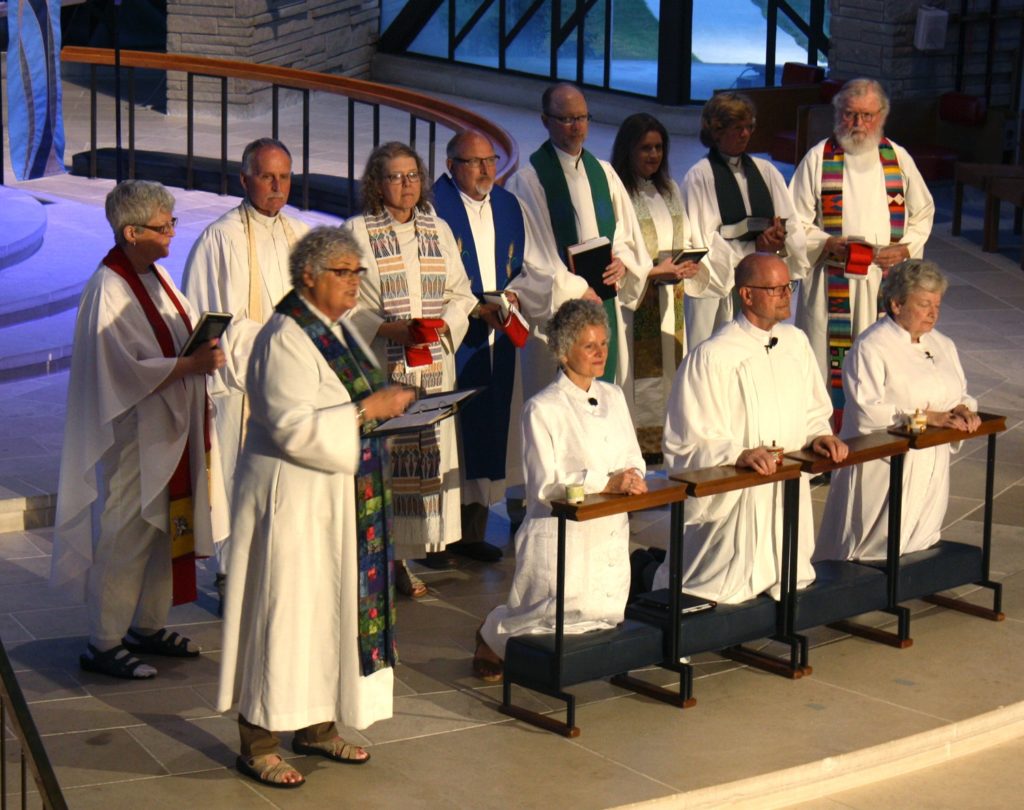
General Council
The governing body of the denomination is made up of 14 members representing the entire geographic region of the church, including both lay people and ministers. Included are the four officers of the Swedenborgian Church, nine representatives from across North America (both elected at the annual convention), and the chair of the Council of Ministers (elected by the Council of Ministers).
This group, referred to as the General Council, meets in the fall, spring, and right before and directly after the Annual Convention. There may also be special meetings convened as needed to conduct the business of the denomination. The Executive Committee meets monthly to conduct the day-to-day business of the denomination.
As of the 2024 Convention, the General Council is:
Executive Committee

President
Rev. Jim Lawrence

Vice President
Kurt Fekete
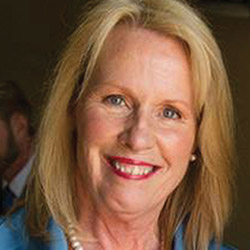
Recording Secretary
Karen Conger
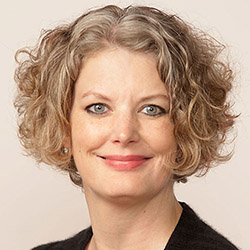
Treasurer
Jennifer Lindsay
Additional Members of the General Council
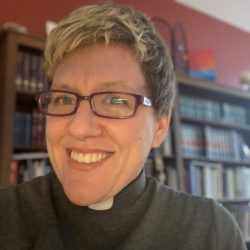
Rev. Sage Cole

Pastor Paul Deming

Dr. Emily W. Tergliafera

Rev. Renée Billings Machiniak

Kelly Schellenberg Kennedy

Tom Murphy

Rev. Thom Muller

Herbert Ziegler

Kei Pang
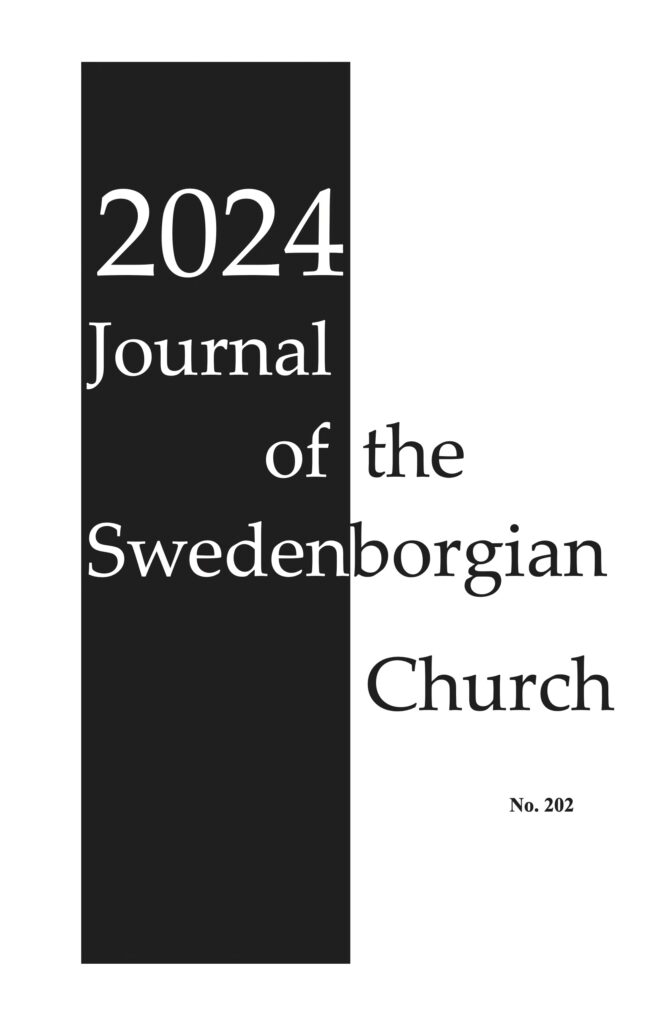
In addition to the Executive Committee and General Council, there are several standing committees that are elected at the convention as well as committees who are appointed by the General Council to conduct specific tasks needed by the denomination throughout the year.
For a comprehensive list of all of the committees, their functions, and their members please refer to the annual Journal.
Good Practices Guidelines
For Ministries of the Swedenborgian Church of North America Endorsed unanimously by voting delegates at the 2019 annual convention
Congregational Relations
• Develop a Congregational Covenant for healthy communication practices in the congregation’s life, and ensure the Covenant is visible and frequently referenced.
• Keep the congregation informed about what the ministry governing board or council is doing, such as regularly distributing Minutes to the membership and friends on email.
• Offer open Board meetings for transparency and cohesiveness.
• Conduct periodic congregational surveys assessing experiences in the ministry, since such surveys facilitate a sense of congregational teamwork and enable a transparency and inclusion that often harvests information and viewpoints otherwise held back.
• Use a facilitator sooner rather than later when congregational dynamics seem to be stuck. • Maintain a standing pastoral relations committee to provide a communication sounding board.
Administration
• Maintain clear job descriptions for all paid staff positions, including the ordained and consecrated leadership and perform annual reviews.
• Develop explicit guidelines on compensating members for work in the ministry. • Create and annually update a Conflict of Interest Policy for the primary governing board. • Avoid having more than one family member at the same time on the primary governing board. • Review Bylaws regularly to ensure they fit the ministry purposes and keep them visible.
• Ensure the Bylaws have a properly worded dissolution clause that protects assets from improper takeover and provides guidelines for how assets will be distributed (e.g., to the denomination, the Association, the theological school, a designated Convention ministry, or combination of these).
Denominational Relations
• Follow the denomination’s Advisory Placement Committee’s guidelines when conducting position searches.
• Send delegates annually to the Association and denominational gatherings and submit an annual ministry report for the denomination’s Journal.*
• Keep the denomination’s Central Office supplied with a copy of the ministry’s current Constitution and Bylaws.
*Note: Receipt of timely annual ministry reports are required in order to be eligible for Augmentation Fund grants.
For Ministries of the Swedenborgian Church of North America
• Develop a Congregational Covenant for healthy communication practices in the congregation’s life, and ensure the Covenant is visible and frequently referenced.
• Keep the congregation informed about what the ministry governing board or council is doing, such as regularly distributing Minutes to the membership and friends on email.
• Conduct periodic congregational surveys assessing experiences in the ministry, since such surveys facilitate a sense of congregational teamwork and enable a transparency and inclusion that often harvests information and viewpoints otherwise held back.
• Use a facilitator sooner rather than later when congregational dynamics seem to be stuck.
• Maintain a standing pastoral relations committee to provide a communication sounding board.
• Maintain clear job descriptions for all paid staff positions, including the ordained and consecrated leadership and perform annual reviews.
• Develop explicit guidelines on compensating members for work in the ministry.
• Avoid having more than one family member at the same time on the primary governing board.
• Follow the denomination’s Advisory Placement Committee’s guidelines when conducting position searches.
• Send delegates annually to the Association and denominational annual gatherings and submit a annual ministry report for the denomination’s Journal.
• Review Bylaws regularly to ensure they fit the ministry purposes and keep them visible.
• Ensure the Bylaws have a properly worded dissolution clause that protects assets from improper takeover and provides them to either the denomination or the Association or a portion to both.
• Keep the denomination’s Central Office supplied with a copy of the ministry’s current Bylaws.
